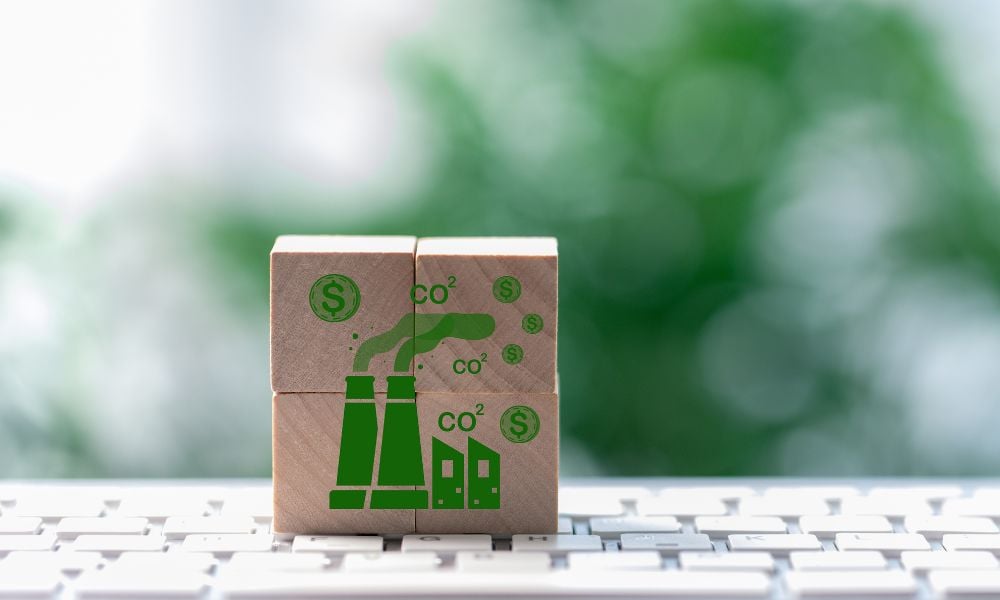Smith defends move as pro-jobs, but critics warn it weakens emissions targets and investor confidence

Alberta Premier Danielle Smith has announced an immediate freeze on the province’s industrial carbon price at $95 per tonne.
According to CBC News, the price was previously set to rise to $110 per tonne in 2026 and to $170 per tonne by 2030.
Smith said the decision is intended to protect competitiveness and jobs amid mounting tariff tensions with the United States.
According to a provincial release, US tariffs are “increasing costs, disrupting supply chains and creating uncertainty for industry.”
Smith stated the move provides “certainty, stability and economic relief” to Alberta businesses, particularly energy producers.
Environment Minister Rebecca Schulz said the freeze—indefinite in duration—was necessary to avoid making Alberta “wildly uncompetitive,” and would continue to support key industries including oil and gas, petrochemicals, agriculture, and forestry.
She added that Alberta remains in compliance with federal benchmarks until Ottawa increases its national standard.
The Canadian Climate Institute has stated that industrial carbon pricing systems are designed to keep costs low for firms.
According to the institute, industries pay around $8.40 or less per tonne of emissions on average, even with a posted carbon price of $80 per tonne. Some sectors profit by outperforming limits and selling excess credits.
These credits are also a material asset.
The Canadian Climate Institute estimates Alberta’s credit pool is valued at $5bn at 2024 prices.
Roughly $4.3bn in annual clean energy investment is linked to the province’s carbon credit framework, with major projects—including a $9bn petrochemicals facility and a $1.4bn low-carbon cement plant—banking on the continued existence of performance-based credit markets.
Critics have warned the freeze could undermine investor confidence.
Stephen Legault of Environmental Defence said fewer funds may be directed toward clean tech development, pushing emissions targets further out of reach.
Pembina Institute’s Janetta McKenzie added that the move could reduce investment in decarbonized sectors.
It could also diminish Canada’s position in future energy trade, especially given emerging tariffs from regions such as the European Union and the UK targeting carbon-unregulated imports.
According to Canadian Climate Institute research conducted with Navius Research, large-emitter trading systems—like Alberta’s—are projected to deliver between 20 and 48 percent of Canada’s total emissions reductions by 2030, the most of any policy tool.
Despite their emissions impact, these systems pose minimal cost to Canadian households.
The institute found that the average impact on household consumption is effectively zero percent in 2025, with a projected increase of just one-tenth of a percent by 2030.
Since industrial pricing mainly targets export sectors, domestic consumers are largely unaffected.
Under federal law, provinces can design their own industrial carbon pricing systems, provided they meet national standards.
Schulz confirmed that Alberta’s freeze keeps it compliant with federal rules until the benchmark is revised.
The Canadian Climate Institute said these federal minimums have improved harmonization between provincial regimes, helping reduce interprovincial trade barriers and costs for industry.
Smith said the freeze is not a reversal of Alberta’s 2050 carbon neutrality target but called for “reasonable time frames as well as reasonable prices” in collaboration with the federal government.
Industry leaders welcomed the move.
Canadian Association of Petroleum Producers president Lisa Baiton urged Ottawa to “fully reset its carbon regulatory scheme,” while Pathways Alliance president Kendall Dilling said the freeze acknowledged competitive pressures facing oilsands producers.
However, Opposition NDP energy critic Nagwan Al-Guneid said the move creates policy uncertainty and distracts from broader economic priorities.
“The biggest threat right now to our economic competitiveness is this flirtation with the separatist agenda, and not Alberta’s industrial carbon pricing,” she said.
Smith and Schulz expressed hope that the freeze would prompt discussions with Prime Minister Mark Carney, who is expected to announce his first cabinet shortly.
The prime minister’s office did not immediately comment.



